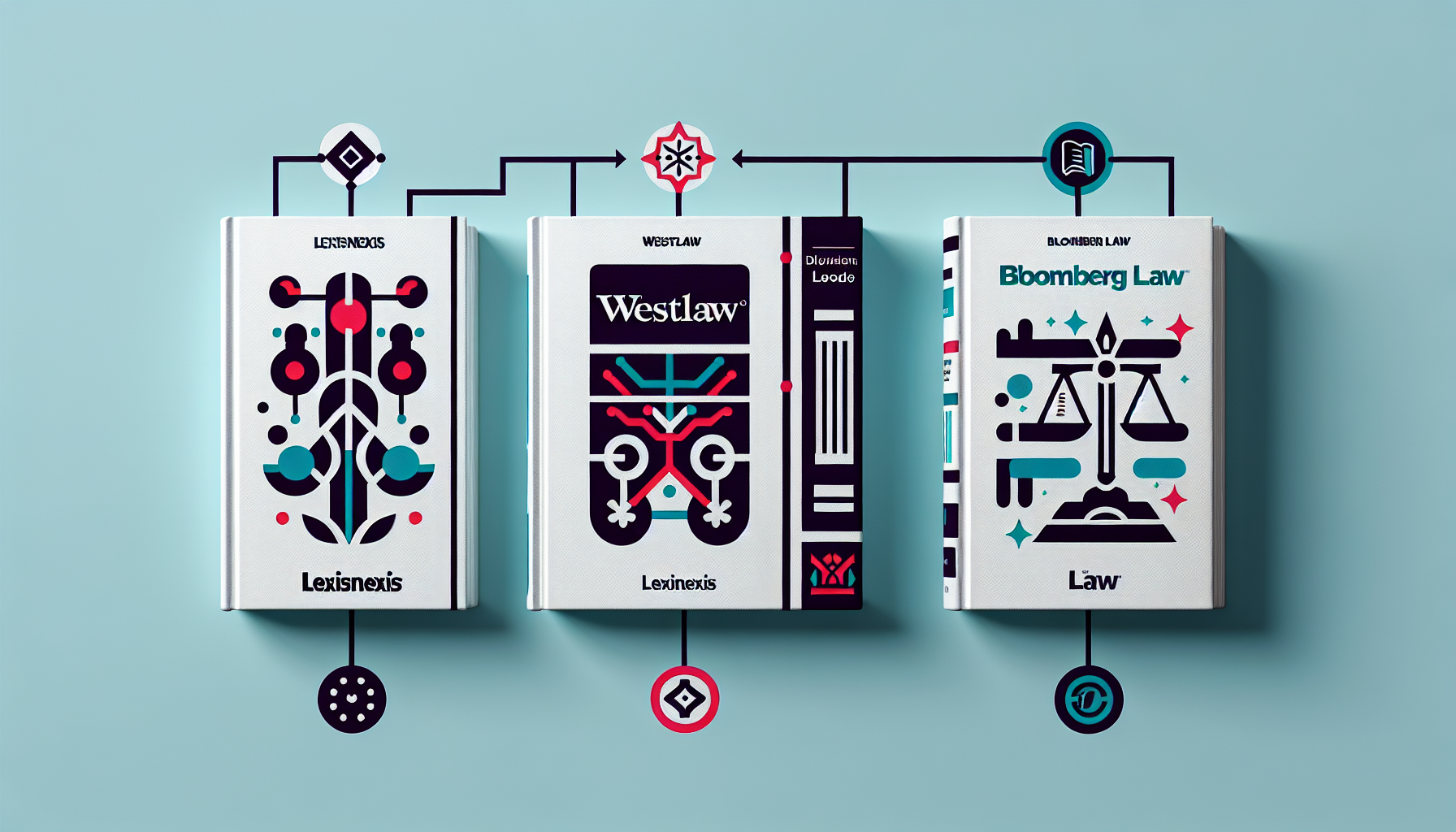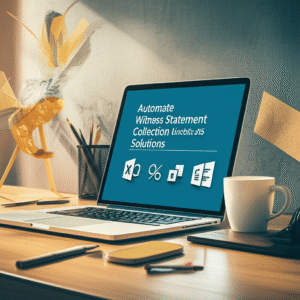LexisNexis vs Westlaw vs Bloomberg Law: Which Legal Research Platform Fits Your Firm?
Estimated reading time: 9–12 minutes
Overview / Introduction
Choosing between LexisNexis, Westlaw, and Bloomberg Law is one of the most common purchasing debates for legal teams. This comparison summarizes practical pros and cons, ideal firm profiles, and how to connect research outputs into Microsoft 365 for consistent drafting, compliance, and knowledge re‑use. It’s written for managing partners, practice leaders, IT/legal ops, and research professionals evaluating value, usability, and workflow fit.
Products Compared
- LexisNexis (Lexis): Broad primary/secondary coverage, robust news/business content, and the Shepard’s citator. Defaults to natural language with full Boolean support (see NYU Globalex overview of fee-based legal databases; Advanced search operators for legal research).
- Westlaw: Comparable breadth plus prized proprietary treatises (e.g., Wright & Miller). KeyCite is regarded as exceptionally robust for validation (see NYU Globalex overview of fee-based legal databases).
- Bloomberg Law: Depth in business law and transactional research, strong dockets and SEC/EDGAR, Bloomberg BNA content, and all-in pricing (see Choosing the Right Legal Research Tool; Harvard Law Library: Legal Databases).
Comparison Table
| Feature | LexisNexis (Lexis) | Westlaw | Bloomberg Law |
|---|---|---|---|
| Default search experience | Natural language by default, full Boolean support (advanced operators guide) | Natural language by default, full Boolean support (advanced operators guide) | Primarily Boolean with advanced filters; steeper learning curve for non-Boolean users (tool comparison; advanced operators guide) |
| Citator | Shepard’s (long-standing standard for validation) (Globalex overview) | KeyCite (widely regarded as exceptionally robust) | BCite (useful but generally less comprehensive than Shepard’s/KeyCite) (tool comparison) |
| Specialty content strengths | Extensive news and business information; strong analytics (Globalex) | Proprietary treatises (e.g., Wright & Miller) (Globalex) | Business law depth, dockets incl. PACER, SEC/EDGAR, BNA content; integrated legal/business news (Harvard Law Library: Legal Databases) |
| Pricing model | Premium; modular/metered packages vary by size and content (Globalex) | Premium; modular/metered packages vary by size and content (Globalex) | All-inclusive, firm-size-based; minimum two-year contract; solo listed at $475/month (tool comparison) |
| User interface & learning curve | Modern, approachable; narrative queries + filters | Modern, intuitive; widely praised for usability | Modern but less intuitive for non-Boolean users (tool comparison) |
| Training & academic access | Extensive training; common in academia (Harvard Law Library: Legal Databases) | Extensive training; common in academia (Harvard Law Library: Legal Databases) | Strong training; academic docket cap for students ($1,500/user annually) (Harvard Law Library: Legal Databases) |
| Best for | General practice, litigation teams relying on Shepard’s and news-driven monitoring | Litigation/appellate teams depending on KeyCite and premium treatises | Corporate/finance/securities practices needing dockets, SEC/EDGAR, business news, and predictable pricing |
Key Takeaways
- Litigation-forward? Start with Westlaw or Lexis for the most robust citator workflows and accessible search.
- Corporate/finance heavy? Bloomberg Law excels with dockets, SEC/EDGAR, BNA content, and all-in pricing.
- Budget predictability vs flexibility: Bloomberg’s all-inclusive pricing simplifies budgets; Lexis/Westlaw can better tailor content but risk “out-of-plan” charges.
- Search adoption matters: Natural language defaults (Lexis/Westlaw) reduce training friction; Boolean-first power users may prefer Bloomberg’s precision.
- Operationalize in Microsoft 365: Standardized Word templates, SharePoint research logs, and Purview policies turn research into reusable knowledge.
Table of Contents
Products Compared
Comparison Table
Key Takeaways
Pricing and Contracts
Search Features and Usability
Citators
Content Strengths and Specialty Materials
Integrations with Microsoft 365
Security and Governance
Use Cases / Best Fit For
FAQ
Pricing and Contracts
- LexisNexis: Premium, package-based; pricing varies by firm size, content scope, and terms (NYU Globalex overview of fee-based legal databases).
- Westlaw: Premium, package-based; similar variability to Lexis (NYU Globalex overview of fee-based legal databases).
- Bloomberg Law: All-inclusive pricing by firm size; minimum two-year contract; solos listed at $475/month—predictable but with commitment (Choosing the Right Legal Research Tool).
Winner for predictability: Bloomberg Law. Winner for flexibility/tailoring: Lexis or Westlaw (practice-specific packages).
Search Features and Usability
- Lexis: Defaults to natural language; robust Boolean and relevance ranking; approachable for mixed-skill teams (advanced operators guide).
- Westlaw: Natural language default; intuitive UI; quick to learn (advanced operators guide).
- Bloomberg Law: Boolean-first precision with powerful filters; learning curve for non-Boolean users (tool comparison).
Winner for broad accessibility: Westlaw or Lexis. Winner for power-user precision: Bloomberg Law.
Citators
- Shepard’s (Lexis): Long-standing standard for validation; trusted signals and editorial analysis (Globalex overview).
- KeyCite (Westlaw): Widely considered exceptionally robust with strong treatment/history integration.
- BCite (Bloomberg): Useful but generally seen as less comprehensive than Shepard’s/KeyCite (tool comparison).
Winner for appellate-grade validation: Lexis or Westlaw.
Content Strengths and Specialty Materials
- Lexis: Comprehensive primary/secondary sources plus notably comprehensive news and business information; strong analytics (see Globalex).
- Westlaw: Comparable breadth and proprietary treatises (e.g., Wright & Miller’s Federal Practice and Procedure), decisive in some practice areas (Globalex).
- Bloomberg Law: Business law depth, dockets (incl. PACER), SEC/EDGAR, Bloomberg BNA, and integrated legal/business news (Harvard Law Library: Legal Databases).
Winner for business/transactional work: Bloomberg Law. Winner for federal practice treatises: Westlaw. Best for news/competitive intel: Lexis.
Integrations with Microsoft 365
While these platforms are distinct ecosystems, most firms must move research into drafting, collaboration, and knowledge management. Align them to your Microsoft 365 backbone:
- Document drafting in Word: Matter-standard templates in Word (SharePoint/OneDrive). Export citations/authorities/notes into templates with predefined styles. Use Power Automate to route finalized memos for approval/filing.
- Research logs in SharePoint: Centralized log with jurisdiction/topic/date/outcome fields; store links and PDFs where permitted; leverage metadata and Microsoft Search to surface internal research (subject to licensing).
- Teams-based channels: Per-matter channels to post summaries, assign Planner tasks, and huddle. Use adaptive cards to prompt Shepard’s/KeyCite/BCite checks before filing.
- Compliance with Microsoft Purview: Sensitivity labels, retention, and DLP for privileged research and client obligations.
- Intake and ticketing: Power Apps forms to intake research requests, assign, track SLAs, and log outputs to SharePoint.
- Knowledge capture: Standardized templates + taxonomy yield a reusable internal knowledge base (e.g., Viva Topics or SharePoint hubs).
- Access control: SSO integration where available; enforce conditional access, MFA, and least privilege across research endpoints.
Bottom line: Regardless of platform choice, standardized M365 workflows amplify quality, consistency, and governance.
Security and Governance
- Governance in M365: Microsoft Purview labels, DLP, and retention reduce overexposure and support client/regulatory obligations.
- Identity and access: Apply conditional access and MFA policies to research endpoints; use least-privilege principles.
- Auditability: Use Power Automate + SharePoint versioning to create review/approval trails for research memos and filings.
Note: This section focuses on the Microsoft 365 layer that operationalizes and protects research across matter lifecycles.
Use Cases / Best Fit For
- Choose LexisNexis if:
- Litigation-focused or general practice valuing comprehensive news, relevance-ranked results, and Shepard’s for validation.
- Teams span multiple jurisdictions and rely on primary law, secondary sources, and business info.
- Natural-language-first search is important, while retaining expert-level Boolean (advanced operators guide).
- Choose Westlaw if:
- You prioritize KeyCite and access to proprietary treatises like Wright & Miller (indispensable for federal practice).
- Mixed research skill levels require a widely praised, user-friendly interface (advanced operators guide).
- You need breadth comparable to Lexis with strong training and market familiarity (Globalex overview).
- Choose Bloomberg Law if:
- Your practice emphasizes corporate, finance, or securities, and you need premium dockets, SEC/EDGAR, and business news (tool comparison).
- You value all-inclusive pricing to avoid “out-of-plan” surprises (two-year commitment; $475/month solo) (tool comparison).
- Your researchers are comfortable with Boolean-first workflows and granular filtering (advanced operators guide).
Hybrid approach: Some firms choose a primary platform and add limited seats on another for specialized gaps (e.g., Westlaw firmwide + targeted Bloomberg for corporate).
FAQ
Which platform is best for litigation and appellate work?
If your practice lives and dies by citation checks, Lexis or Westlaw are the safer picks given Shepard’s and KeyCite strength (see Globalex overview).
Which platform offers the most predictable pricing?
Bloomberg Law offers all-inclusive, firm-size-based pricing with a minimum two-year commitment and a solo rate listed at $475/month—helpful for budget predictability (see tool comparison).
Which platform is easiest for occasional researchers?
Lexis and Westlaw default to natural language, making them more approachable for infrequent or non-Boolean users (advanced operators guide).
Who should choose Bloomberg Law?
Corporate, finance, and securities practices that need strong dockets, SEC/EDGAR, and business news, and value all-in pricing—even with BCite’s comparative limitations (tool comparison).
How do these tools fit a Microsoft 365-centric workflow?
Export research into Word templates, maintain SharePoint research logs, collaborate in Teams, and enforce governance via Microsoft Purview. Use Power Automate and Power Apps for approvals, intake, and SLA tracking to turn research into reusable knowledge.
Can academic access influence our decision?
All three have strong academic presence and training resources (Harvard Law Library: Legal Databases). Bloomberg Law imposes a $1,500 per-user annual docket cap for academic users, a useful benchmark.
Get Help and Next Steps
Pilot with real matters for 30–60 days. Measure time-to-answer, validation success, and attorney satisfaction. Model total cost of ownership including training time and any “out-of-plan” fees.
Automated Intelligent Solutions helps firms evaluate, pilot, and operationalize the right platform—and wire it into Microsoft 365 for repeatable outcomes.
- Vendor-neutral selection: Requirements workshops and proofs-of-concept across Lexis, Westlaw, and Bloomberg Law using real tasks; analysis includes relevance, training needs, and cost modeling (Globalex overview; tool comparison).
- Microsoft 365 workflow design: Word templates, SharePoint research libraries with metadata/retention, Power Automate review and filing, and Teams-based collaboration with built-in validation prompts.
- Governance and risk reduction: Purview DLP, sensitivity labels, and lifecycle policies; knowledge repositories that balance findability with confidentiality.
- Training and adoption: Role-based platform search strategies (natural language vs Boolean) and M365 workflows that accelerate drafting (advanced operators guide).
- Continuous improvement: Metrics dashboards for turnaround time, reuse, and validation rates.
Contact our legal technology consulting team to schedule a consultation.





